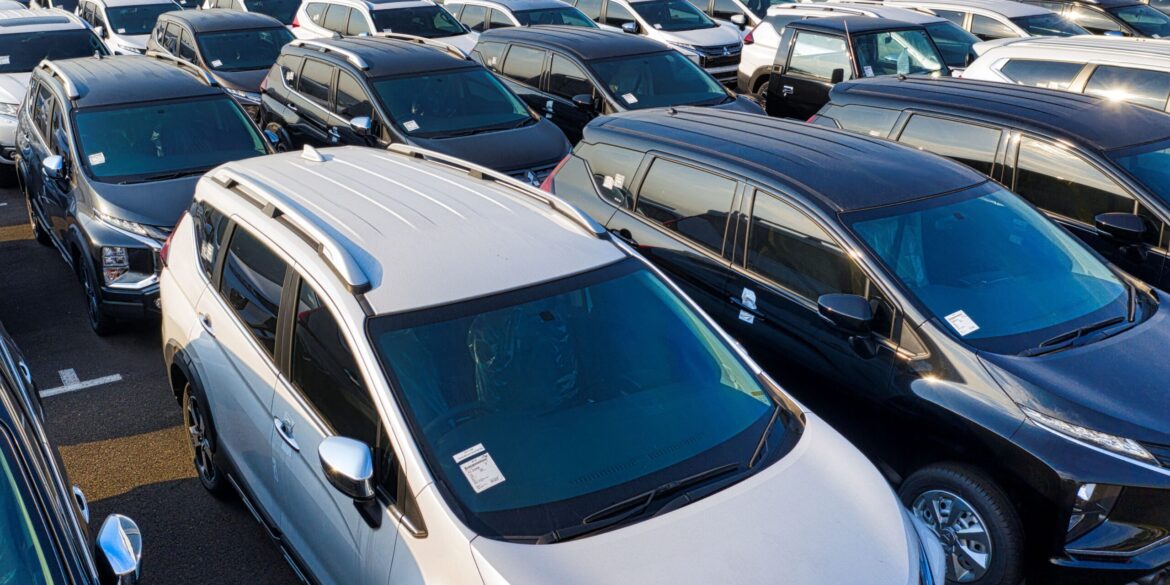In response to growing concerns over trade tensions and the impact of President Donald Trump’s tariff policies, Audi, the premium brand under Volkswagen, is exploring the possibility of building a manufacturing plant in the southern United States. This move is part of Audi’s broader strategy to reduce its reliance on imports and strengthen its position in the U.S. market. The proposed facility, which could cost up to €4 billion ($4.6 billion), would not only mitigate the impact of tariffs but also allow Audi to compete more directly with its rivals and boost its brand presence in North America.
Why Audi Is Considering U.S. Production
The decision to consider establishing a manufacturing plant in the United States comes as a response to the uncertainty of global trade relations, particularly the U.S.’s changing stance on tariffs. In recent years, American trade policies have led to higher tariffs on imported goods, including vehicles. For automakers like Audi, these tariffs make it more expensive to import vehicles from overseas, affecting both production costs and the final price of cars sold in the U.S. market.
Currently, Audi does not have its own manufacturing facility in the U.S., relying instead on Volkswagen’s plants for production. Volkswagen operates a plant in Chattanooga, Tennessee, which produces vehicles for the U.S. market. Additionally, the company is constructing a new facility near Columbia, South Carolina, to expand its U.S. manufacturing footprint. Despite these operations under its parent company, Audi’s own lack of a domestic manufacturing facility has prompted the brand to consider investing in a plant of its own to avoid the higher costs and supply chain disruptions caused by tariffs.
A Strategic Investment for the Future
The proposed plant is expected to be a significant investment, with reports estimating a cost of up to €4 billion ($4.6 billion). The high cost reflects the scale and complexity of establishing a new manufacturing operation capable of producing high-end vehicles for the U.S. market. By building a plant in the U.S., Audi would be able to reduce import costs and better manage its supply chain, providing the company with greater control over production and delivery times.
Building a manufacturing plant in the southern U.S. could provide several advantages. This region has become a hotspot for automakers due to its lower operational costs, favorable tax incentives, and availability of a skilled labor force. Many other automakers, including Mercedes-Benz, BMW, and Volkswagen itself, have already set up manufacturing facilities in the southern U.S., making it an attractive option for Audi as it looks to establish a more localized production base.
Competing with Rivals
Audi’s decision to invest in a U.S. manufacturing plant is also part of a larger strategy to remain competitive in the North American market. The U.S. is one of Audi’s key markets, and having a local manufacturing presence could help the brand strengthen its position against competitors like BMW and Mercedes-Benz, both of which have long had manufacturing facilities in the U.S.
By localizing production, Audi can reduce the costs associated with transporting vehicles from overseas, making it more competitive in terms of pricing. It would also enable the brand to respond more quickly to shifts in consumer demand, allowing for more efficient production cycles and better inventory management.
Additionally, Audi’s new plant could serve as a base for manufacturing electric vehicles (EVs) as part of the company’s commitment to sustainability. As Audi moves toward an electrified future, the ability to produce EVs locally could help the company meet growing demand while reducing its carbon footprint. The U.S. government has also been offering incentives for automakers to build EVs domestically, which further supports Audi’s decision to invest in U.S. production.
The Role of Volkswagen in Audi’s Strategy
Audi’s consideration of a U.S. manufacturing plant also reflects the influence of its parent company, Volkswagen, which has been expanding its operations in the U.S. Volkswagen has invested heavily in its Chattanooga plant and is in the process of expanding its South Carolina facility. Audi’s decision to build its own plant would allow the brand to have more control over its production processes while still benefiting from the shared resources and infrastructure provided by Volkswagen.
Although Audi would maintain its own identity and manufacturing processes, the collaboration between Audi and Volkswagen could allow for cost-sharing in areas like research and development, supply chain logistics, and technology integration. This partnership could enable Audi to maintain its reputation for high-quality vehicles while capitalizing on the economies of scale offered by its parent company.
Conclusion
Audi’s decision to explore the possibility of building a manufacturing plant in the U.S. is a strategic move aimed at mitigating the impact of tariffs, increasing production efficiency, and enhancing its competitiveness in the North American market. With a proposed investment of up to €4 billion, the plant would allow Audi to localize production, reduce costs, and expand its presence in one of the world’s largest automotive markets.
By aligning with Volkswagen’s North American expansion and embracing a more sustainable future, Audi is positioning itself to meet the challenges of the evolving automotive landscape while maintaining its premium brand identity. As Audi continues to evaluate the best location and strategy for the new facility, the decision to invest in U.S. production will have long-term implications for the brand’s success in North America and beyond.


